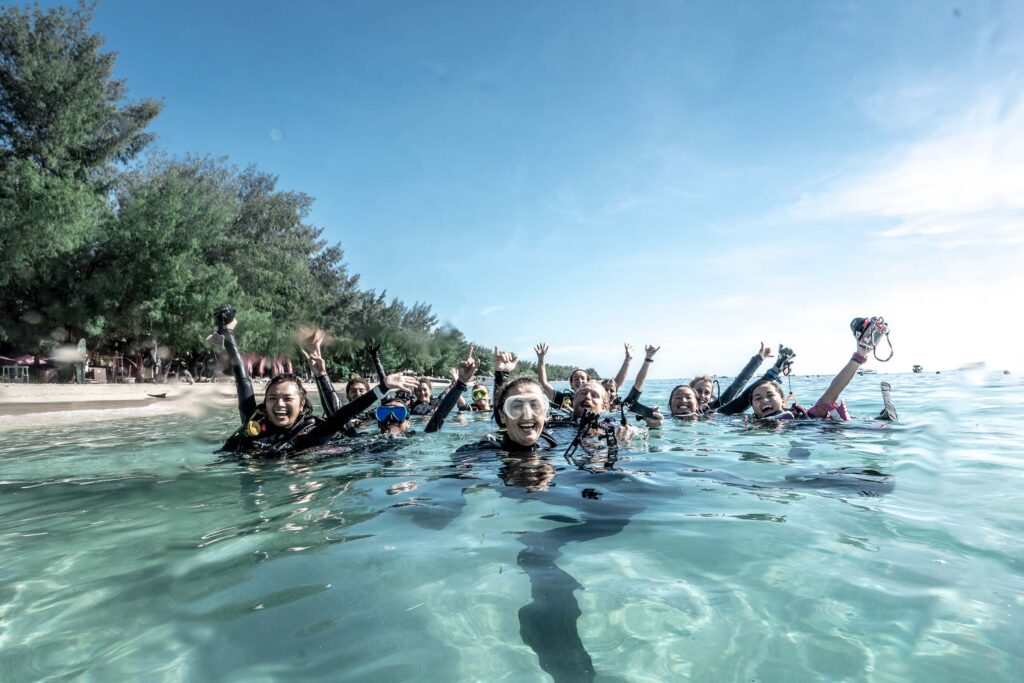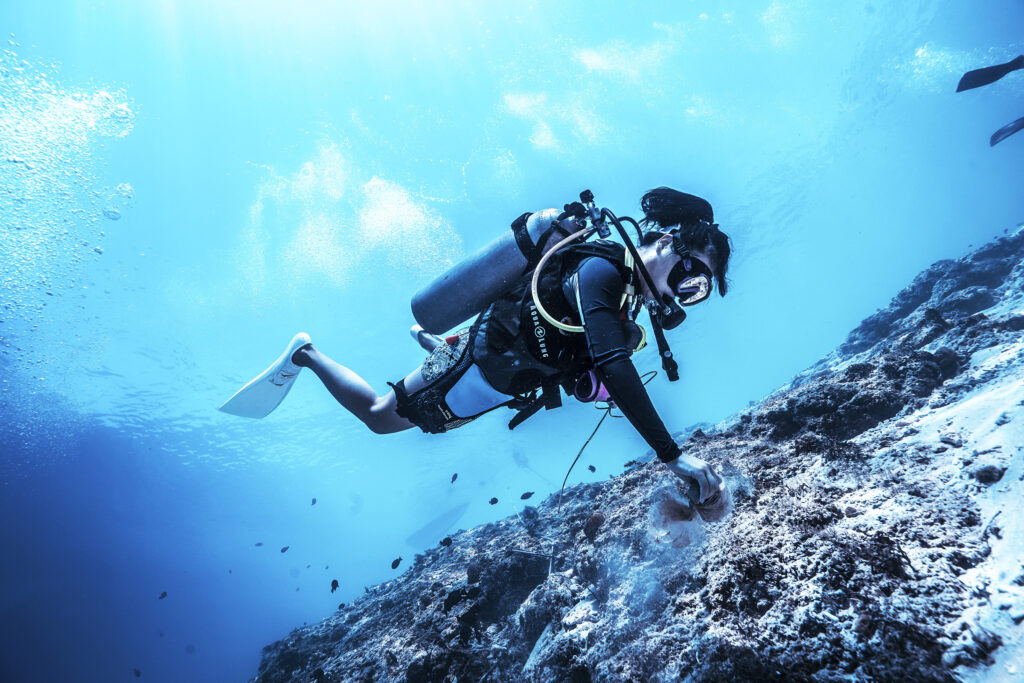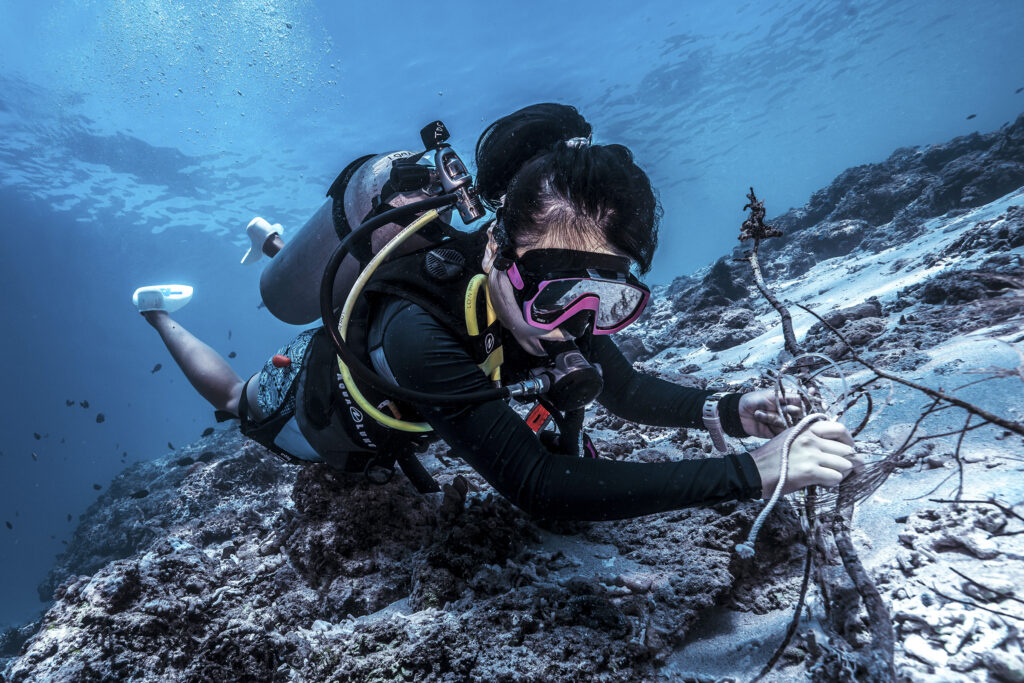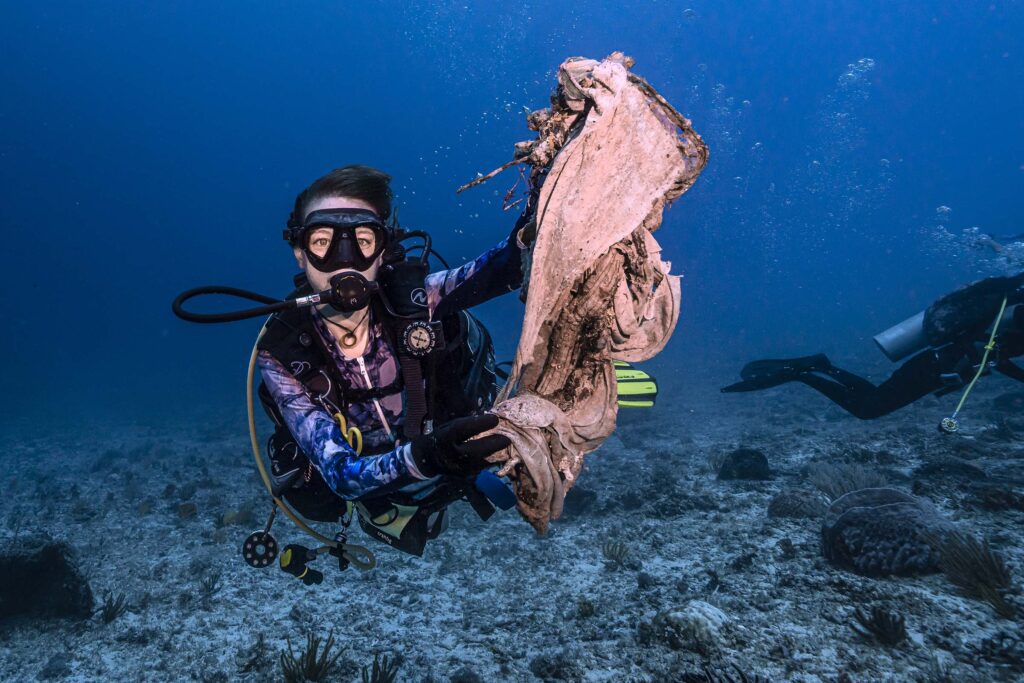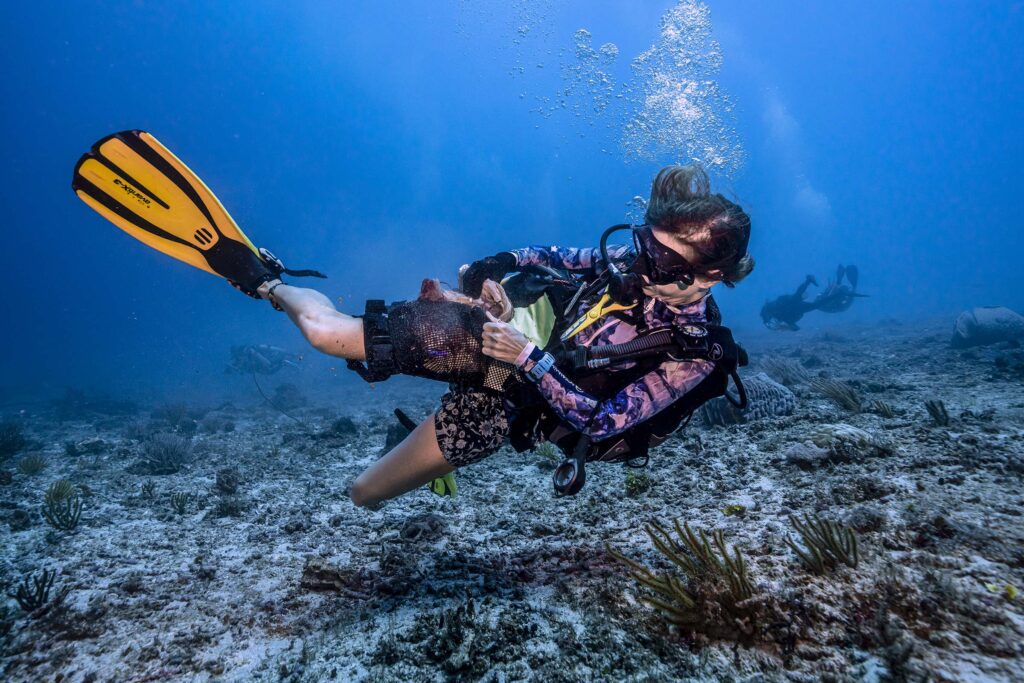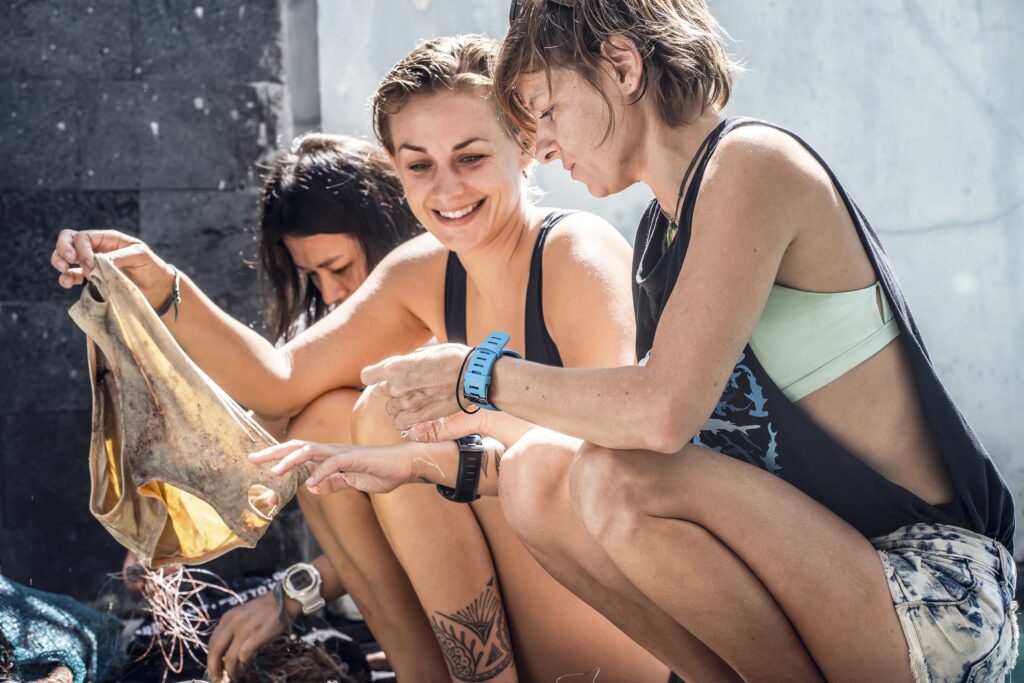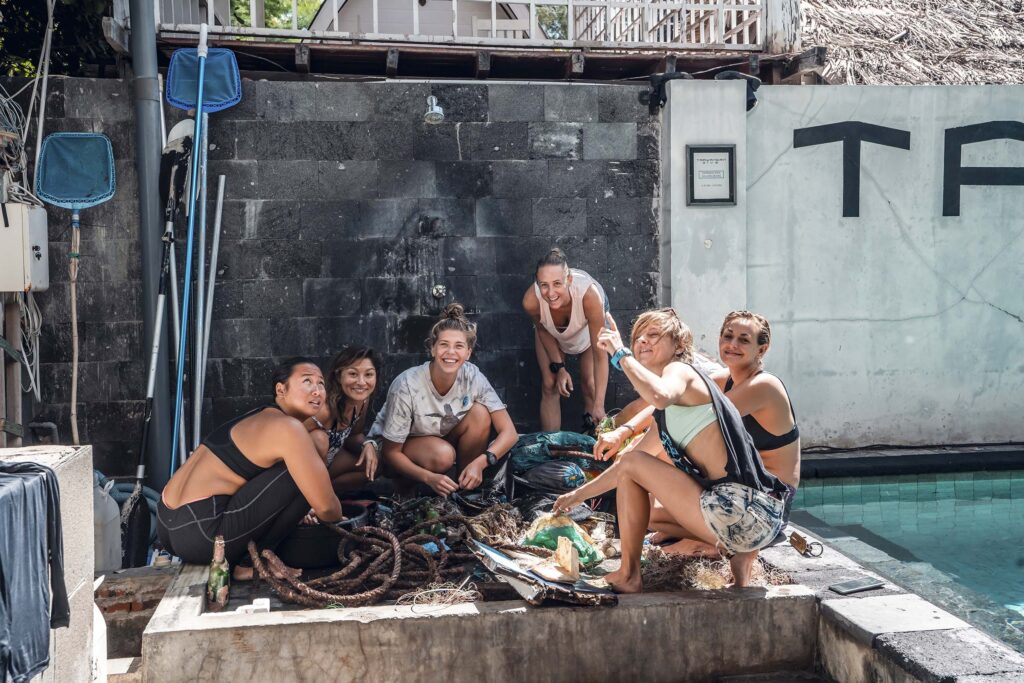
By Siân Williams
Photos by Alfred Minnaar
World Oceans Day on Gili Trawangan, Indonesia, is usually the biggest cleanup event each year. With the global pandemic and a localised island lockdown, I knew it would be a little different this year. But I was still confident that we could do something positive for our oceans and our community.
Locked Down In Paradise
Throughout almost three months of strict policies and no tourists allowed to enter the island, small teams of volunteers have been quietly cleaning beaches and socially distancing. I still hoped World Oceans Day could be a significant ‘action’ event, with many organisations and events switching to online webinars for education and awareness.
Even in the bittersweet knowledge that tourists and divers couldn’t travel to participate, we found that the many scuba instructors who have been stuck here unemployed still have an immense dedication to keeping the reefs around the Gilis clean. We had a good community behind us, and I certainly knew we still had the trash volumes to clean up.

Tracking Trash
We spent the weeks leading up to World Oceans Day planning to clean the worst hit dive sites whilst mapping plastic pollution, degradation and illegal fishing. This varies seasonally throughout the year, and even daily with the famous Indonesian ocean currents! I’ve also noticed over the years that there are seasons and hotspot locations for different types of trash – local trash (drifting from Lombok), tourism trash (butts, bottles, etc. dropped on Gili beaches) – BUT the fishing nets, ropes and ghost lines appear to threaten the reefs all year round.
More and more frequently, ghost nets are washing up on our beaches, lines snagging on sea fans and ripping off corals. As June’s World Ocean Day is during the dry season, there is, fortunately, less trash floating in the water. This is because with less rainfall, the main influx of plastic waste coming from rivers in mainland literally dries up. However the lockdown sparked a soar in illegal fishing practices around the island.
The Gilis are highly reliant on tourism. In the past two decades, the majority of local fishermen turned to alternative incomes and new opportunities within hospitality and tourism. But with these industries being some of the world’s worst hit sectors from the pandemic, these fishermen have been forced to return to finding food or income in any way possible. With local marine authorities closed, fishing boats from south Lombok and as far away as Sulawesi have been fishing on our threatened coastlines. The destruction and debris leftover has not gone unnoticed. And this became our focus for World Oceans Day 2020.
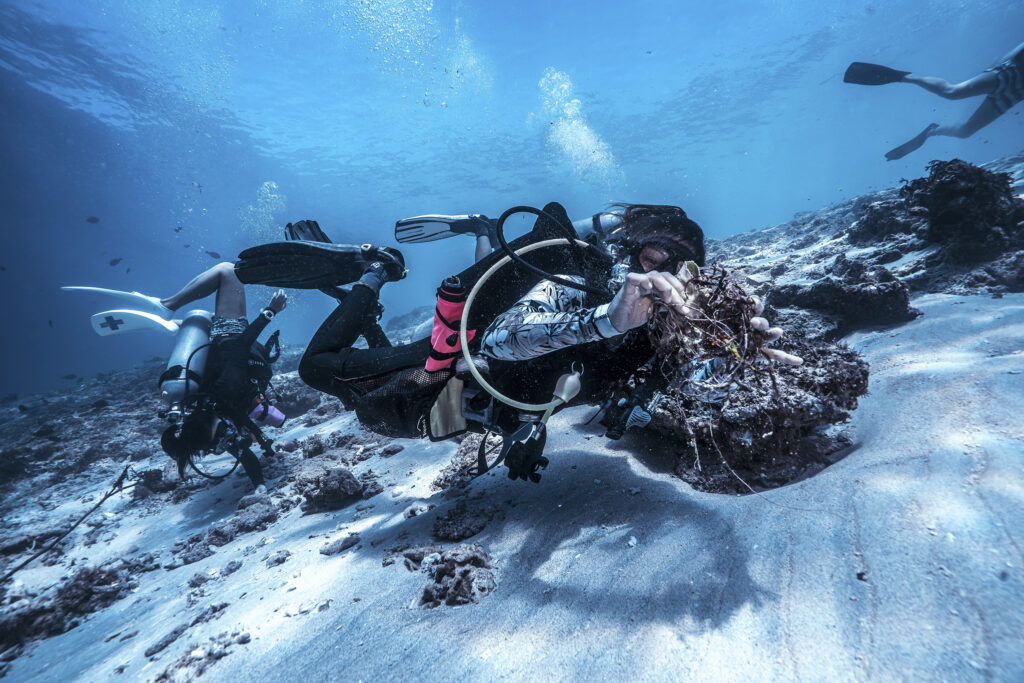
One Day, One Island Clean Up
Armed on the morning of World Ocean Day 2020 with this knowledge and determination, we handed out our hip Trshbgs, scissors and knives. Our team of 11 divers split into two dedicated groups: one collecting fishing lines, nets and discarded mooring ropes, and another collecting plastics, glass and other marine debris. We marched to the house reef to scour the slope for ropes, damaged moorings, and as much line as we could manage.
Trshbgs are ideal for focusing on fishing line recovery. The stuff-hole has a sleeve where you can carefully push in lines and sharp hooks, specially designed so that when you remove your hand, everything stays in place. Focusing on fishing lines, it was hard to go over the recommended limit of collecting 3KG in each bag, but divers had additional bags and equipment on hand for heavier debris.
What’s more is that these bags are made almost entirely of recycled materials! Using a bag made from rubbish to clean up more rubbish is one of the best examples of a circular economy we have seen within environmental cleanup actions! Vinyl banners in Indonesia are incredibly cheap and therefore common. We find them all the time discarded on the beach and in the water. Being so durable, it’s a great material to make the Trshbg from: once a hook is in, it can’t pierce you or snag like a regular mesh bag.
With the efforts of five dive shops on Gili Trawangan, more than 116kg of marine debris, ropes and fishing lines were recovered from the reef. It was a huge success! But I never know whether to be proud or disheartened when we remove lots of debris. It’s great that it is out of the water, but why should it even be there in the first place? And how can we make sure that it never reaches there again?
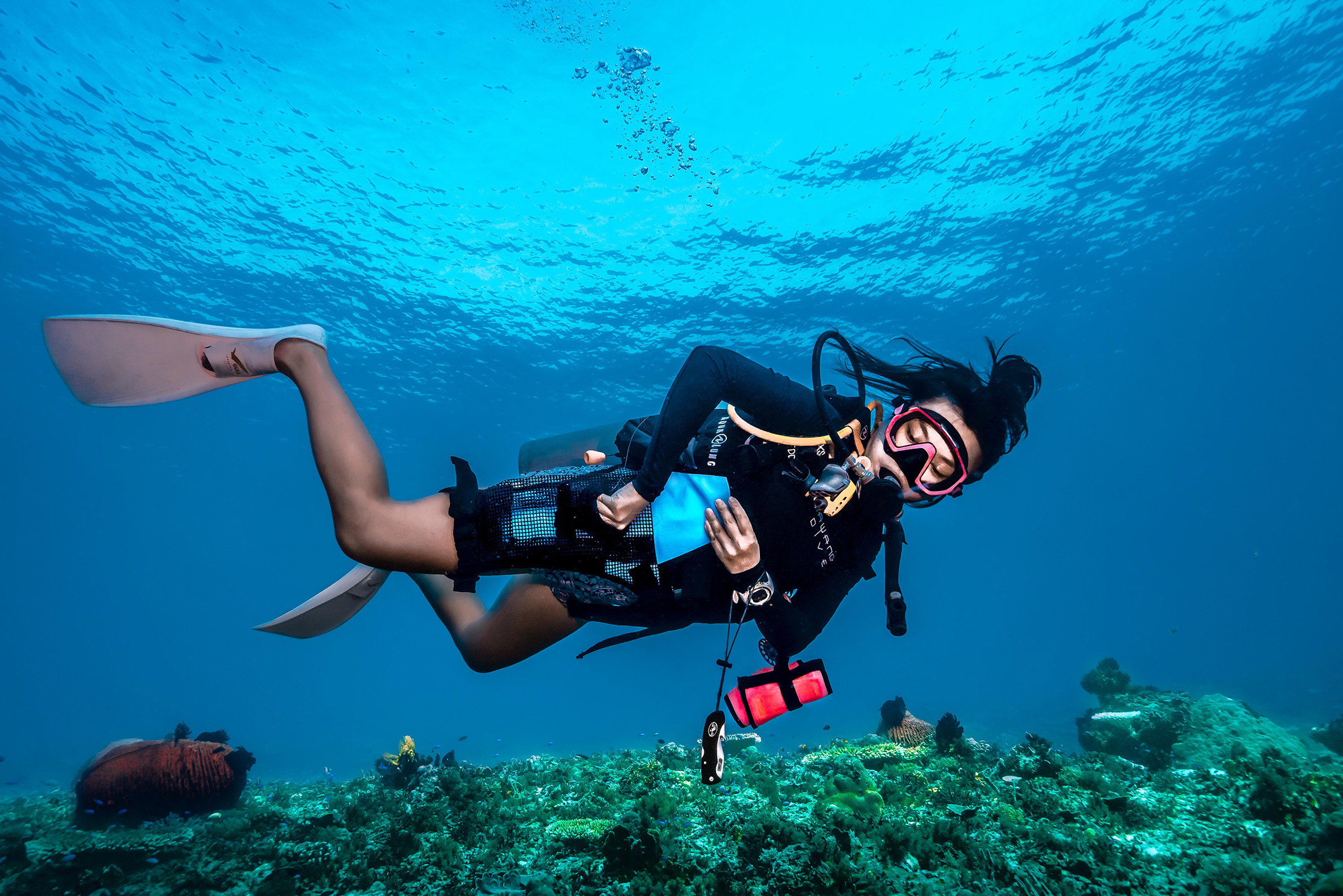
What happens to waste after it’s wasted?
The Gili Eco Trust has spent four years searching for recyclers in mainland Lombok that accept a huge array of commonly found plastics and other debris. This way, we are not only responsible for the cleanup of the trash, but also the whole ‘afterlife’ of sorting and processing procedures, to make sure it is dealt with properly and not all destined to rot in landfill.
We are determined to clean and recycle as much of the marine debris we find as possible, to ensure the same fate is not repeated. This makes the post dive Trshbg assessment even more time-consuming than the cleanup itself! Not to mention the added extra hygiene measures we have been going through since the pandemic, and onwards into the future, washing our hands thoroughly after every clean up, and disinfecting all trash that could be repurposed and recycled.
Dive instructors helped to sort the different materials and fragments. Including a thorough check for any marine macroorganisms that love to live on trash. An array of tiny crabs, shrimp and even brittlestars! These were carefully removed and returned to the sea.
Luckily through the Trshbgs one-way system, you can empty the bags easily with a side exit zip. We removed all the hooks from the line and coiled them all up for repurposing or upcycling – we love making bracelets and jewellery from our trashy treasures!One of the things I love about the Trshbg is that each bag is unique with patterns, colours and designs varying completely with the recycled vinyl banner material. Plus we end up using our Trshbgs for many different tasks! Nifty, compact and designed for travel, we took the Trshbgs for our World Ocean’s Day afternoon of beach cleaning.
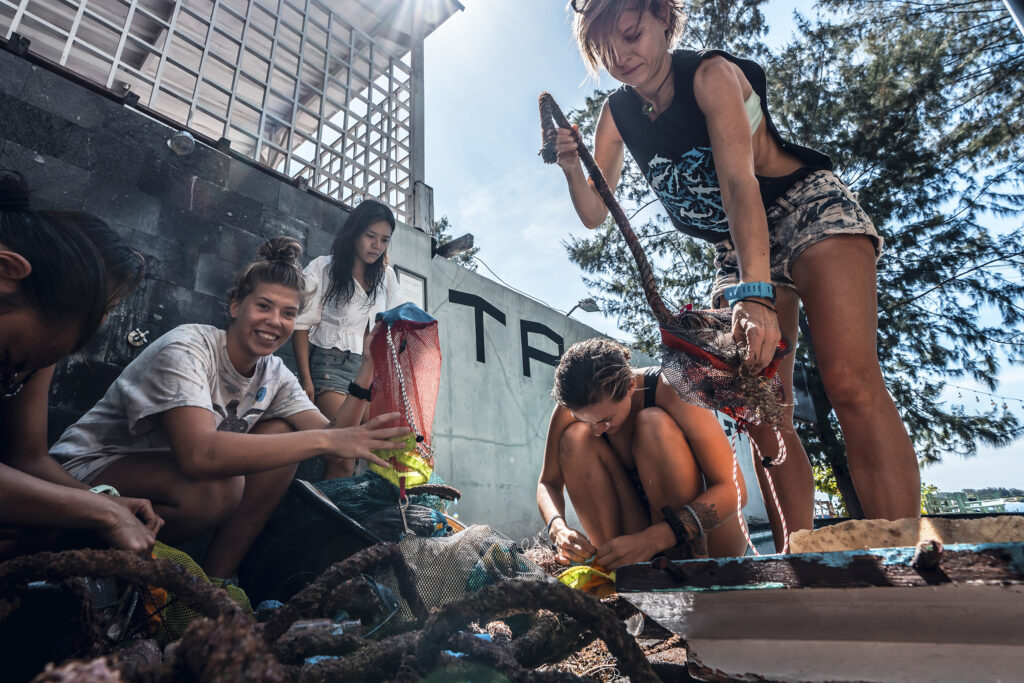
To maintain social distancing in the afternoon, we mapped four separate beaches for volunteers to spread out for a huge beach clean. I always go to my favourite beach in the west. Here I’ve located the worst hit spots for ghost fishing gear, plastic bottles and cups – some of the main things we can recycle and a chance to pick up some more fishing lines and ropes for future repurposing projects. Collectively from the four beaches in one afternoon, we recovered 385kg of trash. When totalled with the underwater clean up in the morning, it came to 510kg – that’s more than half a ton in just a single day!
Collective efforts and community cleaning made for a successful World Oceans Day that we can hopefully repeat again in the future! We have increased our eco-army and we hope to continue to educate and inspire to help spread the message of ocean conservation messages further.
Editorial note by trshbg: The divers at Gili Eco Trust are highly trained and well briefed to recover ghost fishing gear. Picking up sharp objects without any training is not recommended. Always get proper training first and always be careful. Enjoy your dive safely.
About the author: Siân Williams is a British geographer, conservationist and PADI dive instructor living the island life in Indonesia for 8 years. Dedicated to cleaning up the oceans and beaches, and inspiring as many travellers, holiday makers and local community as possible to lead a more sustainable life.
Representing the Gili Eco Trust and its environmental missions for a sustainable touristic island through the reduction of single use plastics, recycling initiatives and coral reef restoration. The Eco Trust aims to create a zero-waste model of an eco-dive destination to guide other islands throughout Indonesia into long term and more sustainable goals, by recruiting eco warrior volunteers and empowering the local community.
Photos by Alfred Minnaar
